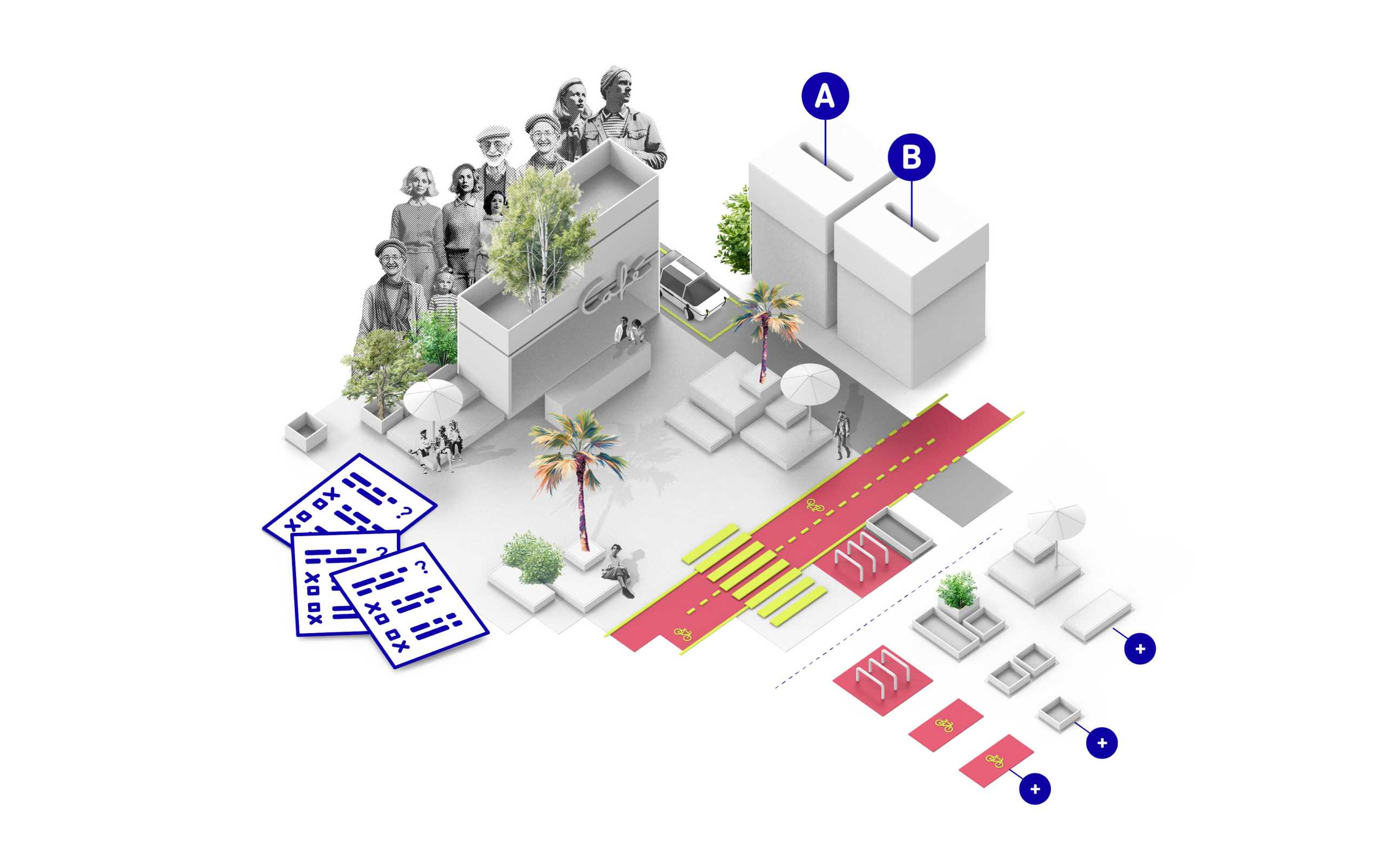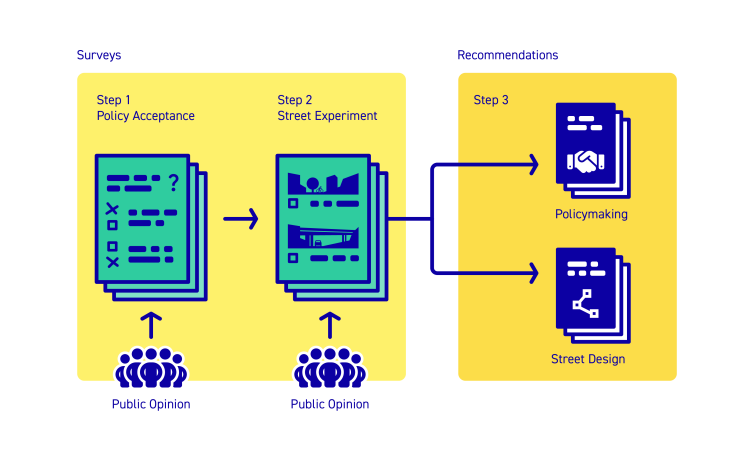Public participation and implementation of an E-Bike City
Sub project G

Description
This subproject aims to examine public attitudes towards the policy implementation of an E-BikeCity from the perspective of residents. Our research addresses how an E-Bike City can gain public acceptance and how various factors such as information provision, policy design, ancillary policy measures, and road space reallocation influence public opinion. Key questions we explore include the public's assessment of the E-Bike City concept, the perceived environmental and societal impacts, and the effectiveness of different policy design strategies on public perception.
Utilizing the Swiss Mobility Panel (SMP), the study involves three survey waves beginning in November 2023, followed by additional waves in spring and fall 2024. These surveys will feature vignette and forced choice experiments to assess public acceptance of E-Bike City policy proposals, with a design that incorporates the latest findings from other work packages.
The first survey wave will introduce participants to the E-Bike City proposal through a detailed description and video, establishing a baseline for measuring initial public reactions. This wave aims to capture a spectrum of attitudes and mobility behaviors and compare responses between urban and rural residents. An integrated vignette experiment in the first wave will present two distinct E-Bike City policy proposals for evaluation. Participants will assess each proposal's support level, fairness, effectiveness, and intrusiveness, ultimately expressing their preference in a hypothetical popular vote. In addition, a discrete choice experiment engages participants with two policy proposals designed to reduce car traffic in Swiss cities. Each proposal is assessed using four criteria: support, fairness, effectiveness, and intrusiveness. The discrete choice experiment allows respondents to express their preference for one proposal over the other and their willingness to support each policy through a hypothetical vote. This setup is aimed at capturing nuanced public opinions on the reallocation of road space for active mobility and the implementation of supportive measures such as subsidies for e-bike purchases and public transport ticket price reductions.
Further waves will provide enriched contextual details about the E-Bike City proposal, such as specific information on e-bike infrastructure, environmental impacts, equity impacts, and cost implications. The core of wave 2 will be a Street Design Experiment. This experiment aims to delve into preferences of residents for the built environment of an E-Bike City. By conducting a stated choice experiment, the study will systematically vary attributes of street-scale infrastructure, as well as social and environmental aspects to analyze the impact of these features on the assessment of an E-Bike City.

To comprehensively assess public opinion, the subproject will employ a variety of survey designs across different panel survey waves, ranging from standard questionnaires to survey experiments like list and conjoint experiments. The SMP also includes data on political attitudes, mobility behavior, and socio-demographic characteristics. Overall, this subproject aims to provide an in-depth understanding of public attitudes towards the E-Bike City initiative, offering valuable insights into how policy implementation can be shaped to garner widespread support and successful integration into urban life.
Publications
Principal investigator
Deputy head of Inst Spatial and Landscape Development
Raumentwicklung und Stadtpolitik
Stefano-Franscini-Platz 5
8093
Zürich
Switzerland

Researchers
Inst. f. Raum- u. Landschaftsentw.
Stefano-Franscini-Platz 5
8093
Zürich
Switzerland

Inst. f. Raum- u. Landschaftsentw.
Stefano-Franscini-Platz 5
8093
Zürich
Switzerland
